100 Things You Need To Do While Purchasing a House

If you’re thinking about buying a home this year you’re like 41% of Americans, according to a recent study by Architectural Digest. For most of us, purchasing a house is the biggest financial decision we will ever make. It is layered with big emotions, complex expectations, and cuts to the core of our sense of self and our ideas about what it means to have a good life. Not to mention the piles of paperwork and legal considerations.
Find Out: Here’s When To Buy a New House, According To Kevin O’Leary
Read More: 4 Genius Things All Wealthy People Do With Their Money
If all that sounds overwhelming, don’t worry. We’ve got you covered with a list that spans everything from the basics to the nitty gritty details about agents, mortgages, houses, location and finances.

Make a Timeline
Think about when you want (or need) to be in your new home. Six months is a good estimate if you don’t have a hard deadline, a new job or family member or an expiring lease. And it may take longer.
Check Out: 5 Types of Homes That Will Plummet in Value in 2024
Learn More: I’m a Real Estate Agent: Here Are the 4 Florida Cities Where You Should Avoid Buying a Home

Check Your Credit Score
A higher credit score can lead to better mortgage rates, so ensure yours is in good standing.
Discover More: I’m a Real Estate Agent: 5 Places I’d Buy a Vacation Home If I Had $500,000

Get Your Budget in Order
Pay off any credit card debt you’re carrying. But don’t stop using your credit cards. You want as high a credit rating as you can muster.

Determine How Much You Want To Spend
The median sale price for a new home in March was $430,700.
Determine your financial limit before starting the hunt. Be realistic about how much you would be able to go over your ideal budget if you find your dream home.

Visit Potential Locations for Your New Home
Make a few day trips to see the neighborhoods you’re interested in. Grab a bite at a local cafe and take a walk in a park.

Stop by Some Real Estate Offices
Explain you’re just beginning your search. Ask lots of questions and chat long enough to see if this is somebody you connect with.
After all, you will be sharing intimate financial details with them, plus the doubts, anxieties and frustrations that can come with finding a place to buy.
Explore More: ‘Rich Dad’ Robert Kiyosaki: Use This Two-Step Formula for Real Estate Investing
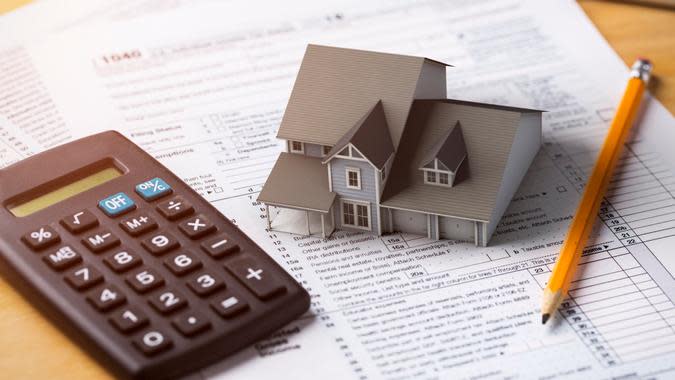
Research Mortgage Options Thoroughly
Connect with a mortgage loan officer, who can help you explore loan types to secure the best deal for your financial situation.

Understand the Seller
Compass luxury property specialist Jean Pral said that buyers can put themselves in the seller’s mindset.
“Find out what the needs of the seller are: Do they want a short close, or do they need a rent back? Position yourself so your terms are the most attractive to the seller.”

Learn About Down Payment Requirements
Different loans have different rules. A mortgage loan officer can help you sort out the details.

Keep an Eye on Interest Rates
Do some research about interest rate trends. According to Freddie Mac, the average 30-year, fixed-rate mortgage is 7.22% as of May 2. That high rate is one reason inventory is lower right now. But if the Federal Reserve cuts rates again in 2024, rates may go down and inventory might increase.
Be Aware: In Less Than a Decade, You Won’t Be Able To Afford Homes in These ZIP Codes

Estimate Closing Costs
These can include lender fees, plus payments to third parties such as inspectors, appraisers and title companies. For the buyer, closing costs are typically 2% to 5% of the home’s purchase price. Realtors and mortgage loan officers will be able to help you plan for closing costs.

Keep Your Income Consistent
Irregular income can make the homebuying process trickier. Avoid starting a new job — or quitting your job to become an entrepreneur — at least until you complete your loan application paperwork.

Save for a Down Payment
Put away as much extra savings as you can toward a down payment. This is one way to potentially lower your monthly payments.

Consider Hidden Expenses
Buying your home isn’t one and done. You’ll have to factor in ongoing costs like property taxes, homeowner’s insurance, homeowner association fees and maintenance.
Read Next: 8 Places Where Houses Are Suddenly Major Bargains

Get Preapproval for a Mortgage
Starting early (at least a month before) is smart. Obtain preapproval to show sellers you’re a serious buyer and understand your borrowing capacity.
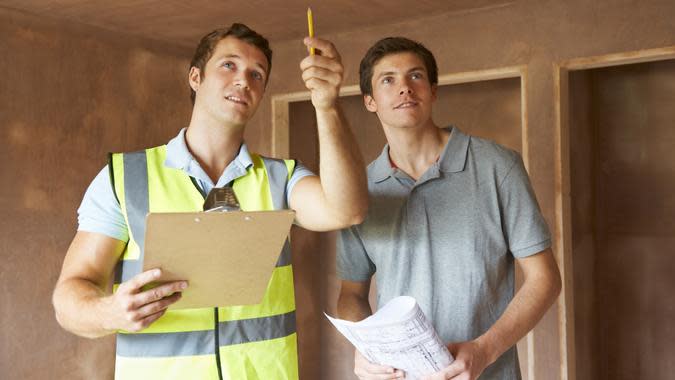
Prepare To Waive Inspections
Even though inspections protect buyers, realtor Jean Pral said that in a multiple-offer situation “many buyers will waive inspections or agree to review the inspections the sellers have provided.”
This can be risky, but you can also get a warranty to help defray needed repairs.

Research Neighborhoods Thoroughly
Look beyond the house itself. Evaluate the surrounding area for amenities, safety and future development.

Check Out Local Schools
It’s no secret that homes in a highly-rated public school district can be significantly more expensive. Do your research to see if you would be happy to send your kids to the neighborhood school. There’s something magical about walking to kindergarten.
Check Out: Barbara Corcoran Says, ‘Forget About Florida,’ Move Here for Cheap Homes
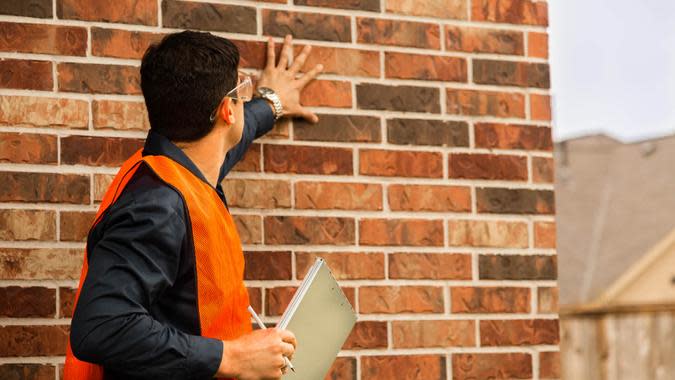
Inspect the House Carefully
Hire a professional inspector to uncover any hidden issues before committing to the purchase.

Research Programs for First-Time Buyers
If this is your first rodeo, investigate ways to get assistance on down payments or financial planning.

Consider Resale Value
Choose a property with potential for appreciation and in a desirable location to safeguard your investment. This might mean a smaller space or trading off some other amenities on your list, but the long-term gains may be worth it.

Location, Location, Location
Think about stores, restaurants, roads and parks. How much driving do you want to do? How walkable is the area? Can you go out for a fancy dinner or a Friday night burger close by?
Find Out: Here’s the Salary a Single Person Needs To Live Comfortably in Hawaii
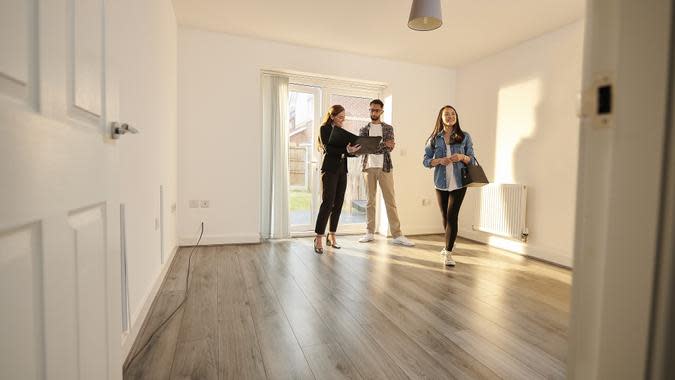
Consider Upcoming Changes to Realtor Fees
Realtor fees may drop overall after the recent National Association of Realtors Lawsuit. But first-time or lower-income buyers may feel the sting of having to pay a realtor themselves. Buyers will also have to make an agreement about fees upfront, which may be an extra burden on first-time or lower-income buyers.

Location, Location, Location, Part II
If you’re looking in or near your home area, you probably know what you love (or don’t love) about the city, the inner suburbs, the exurbs and the small towns surrounding it. But if you’re moving away from friends and family, think about what is most important to you. Walkability? Access to green space? A short commute?

Dream Big
Money’s very much an object, both in the long run and the short run. But that doesn’t mean you can’t envision what your dream home looks like. Think about how this home will make you feel. Even if you can’t get every amenity on your list, you can chase that feeling, whether it’s serenity, excitement or beauty.

A Rough Calculation: A Place To Start
CJ Johnson, a long-time financial manager and amateur real estate hound, offered this rule of thumb for thinking about monthly mortgages, taxes, insurance and unexpected repairs: Figure 20% down and then a monthly outlay of $1,000 for every $100,000 in the mortgage.
Explore More: 44 Best Small Towns To Retire in America

Where Do You Need To Be?
Near your work? Near school for your kids? Near nature? Water? A park?
How long will it take and how much will it cost to get there? Make a budget for your location and your timeline.

Smart People Ask For Help
Getting your budget under control is a good thing to do before, during and after you buy a house. Consult a certified financial planner. Share your timeline. With their help, figure out what your price range is and what you can afford monthly and any tradeoffs to consider when it comes to your financial goals like saving for retirement or kids’ college.

Get a Bridge Loan While You Sell Your Current Home
Real estate agent Jean Pral said, “If you find your dream house and need to sell the one you are in, get a bridge loan. That way, you don’t have to make an offer contingent on your home selling, which weakens your buying power in a competitive market.”

What Kind of Mortgage Is Right for You?
Fixed-rate or adjustable? 15-year or 30-year? There are plenty of levers to pull to get the best mortgage for your situation and goals. Speak to a certified mortgage loan officer to understand your options.
Discover More: 16 Best Places To Retire in the US That Feel Like Europe
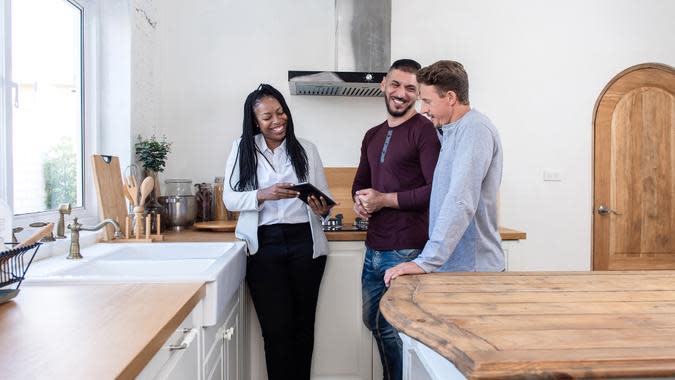
Do Some Advanced Research
Perhaps the quickest and best way to get prequalified for a mortgage is to get a mortgage broker who will know what’s available in your area. Interview one or two, if you can, to find the right fit.

Evaluate Commute Time
Consider your daily commute to work or school to gauge convenience, extra costs and potential stress.

Research Property Taxes
Understand the property tax rates in the area to factor into your budget. Ask around about whether there are any significant increases on the horizon. (These may be good, since they could fund important local projects and schools, but you’ll want to be prepared.)

Don’t Hold Back Your Offer
“In a multiple offer situation,” realtor Jean Pral said, “put your best foot forward and make the best offer you can.”
You might be hoping for a counter, but there’s a good chance you won’t get one in a competitive situation.
Read Next: Here’s Exactly How Much Savings You Need To Retire in Your State

Check for Flood Zone
Determine if the property is in a flood zone and assess the risk accordingly. Research insurance options and costs in the area.

Tap Into Your Savings Without Penalties
First-time homebuyers can take up to $10,000 from their traditional IRAs for a down payment on their first home without paying taxes or penalties. There are limitations, so it’s a good idea to check with your tax advisor first.

Verify Zoning Laws
Ensure the property’s zoning laws align with your intended use and future plans. If you plan to build an ADU for your mother-in-law but it’s not allowed, there may be marital strife on the horizon.

Review Home Inspection Report
Thoroughly review the inspector’s report and address any concerns with the seller. This is your chance to ask questions and get answers! (Though in a competitive bidding situation, you might not get this chance.)
Be Aware: 7 Appliances Frugal Homeowners Steer Clear Of

Get a Home Warranty
Consider purchasing a home warranty for added protection against unexpected repairs. Especially if you have waived an inspection. Read the coverage carefully.

Understand Contingencies
Contingencies offer a way to back out of the deal if certain conditions aren’t met by a deadline. A good real estate agent will be your best advisor about contingencies.

Visit at Different Times
Visit the property at different times of the day and on weekends to assess noise levels and neighborhood activity. Think of the most vulnerable members of your household (elders, women, kids) and whether they will feel safe.
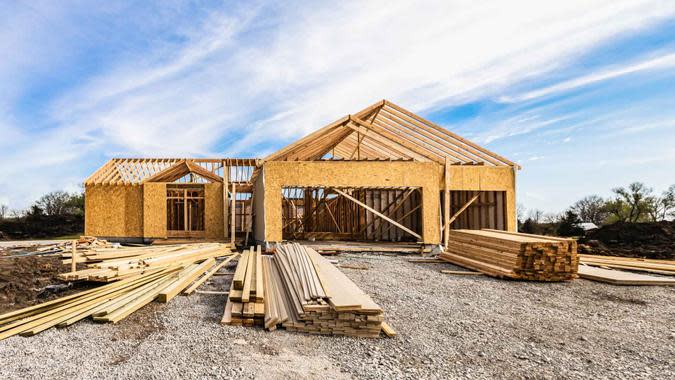
Consider Future Development
Research planned developments or construction projects that may affect property value for better or worse. Moving in and listening to two years of construction on a new apartment building might make you lose your mind.
Check Out: Nearly Half of Americans Struggle To Pay Their Utility Bills: 5 Ways To Save
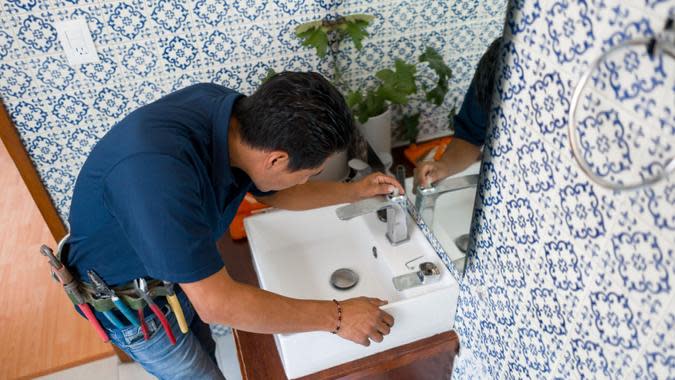
Get Quotes for Home Repairs
Obtain quotes for any necessary repairs identified during the inspection so that you can budget accordingly.

Research Resale Market
Understand the current real estate market and trends in the area for potential resale value.

Check Internet Connectivity
Test internet connectivity in the area to ensure it meets your needs for work or leisure. Many homes have limited options when it comes to cable and internet service providers. Ask sellers about how the service has been for them and consider paying for upgrades if needed.

Consider Home Security
Evaluate the property’s security measures and consider investing in additional security features if needed.
Find Out: The 50 Happiest States in America and How Much It Costs to Live There

Ask the Seller About Their Biggest Struggles
People often want to share their stories. You might get insider info on the ants that come in the spring or the surly neighbor on the block.

Factor In Home Accessibility
Consider accessibility features if you have mobility issues or plan to age in place. Can changes be made to support you as you age?

Consider an RV or Airstream Trailer
Some Americans are thinking about living on the road full time. This adventurous life may be more budget-friendly too!

Review Homeowner Association Bylaws
Understand the HOA’s rules regarding renovations, landscaping and other restrictions.
Explore More: Here’s How Much the Definition of Rich Has Changed in Every State
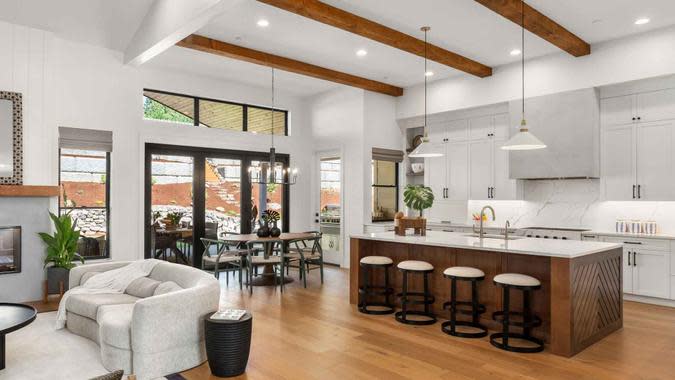
Assess Natural Light
How many windows are there, and which way do they face? Do you love houseplants? Think about how natural light levels will get lower in the winter and how that will affect your well-being.

First-Time Homebuyer Closing Costs
Ask your realtor or do some research on ways to reduce closing costs for first-time buyers. There are programs to reduce these costs, and many of these costs can be negotiated.

Keep an Eye on HUD Homes
This program from the U.S. Department of Housing and Urban Development sells homes that have reverted to HUD ownership due to mortgage default.

Check for Pest Issues
Inside and out, inspect for signs of pests and consider scheduling a pest inspection if necessary.
Read More: A $150K Income Is ‘Lower Middle Class’ In These High-Cost Cities

Research Utility Costs
Estimate monthly utility costs based on the property’s size, features and location.

Energy Efficiency: Heat Pumps, Water Heaters, EV Charging
Evaluate the timing and feasibility of future upgrades and whether or not you can plan for energy-efficient changes that may be more costly upfront but will save you money (and save the planet!) in the long run.

Understand Renovation Restrictions on Historic Homes
Research any restrictions on renovations or modifications imposed by historical preservation laws.

Check For Easements
Determine if any easements exist on the property that may affect land use or access.
Discover More: How Much Household Income Will Be Considered Upper Middle Class in 5 Years?

Plan For Home Improvements
Budget for home improvements or upgrades to personalize the space to your liking. What can you do yourself, and what should be done by a contractor? Which things need to be done right away, and which can wait until your finances settle a little bit after the move?

Consider Noise Pollution
Evaluate potential noise pollution from nearby roads, airports or commercial areas. Air pollution in these areas can also decrease home air quality.

Research Homeowners Insurance Claims
Research past homeowners’ insurance claims to identify any recurring issues or risks. Get a free yearly CLUE report online.

Verify Clear Property Title
Ensure the property’s title is clear of any liens or legal disputes.
Find Out: Ramit Sethi: Track These 4 Numbers To Become a Millionaire

Be Patient, Not Pressured
Luxury real estate broker Amy Deming Simkins knows that buyers can feel a lot of pressure. She said that no one should buy a property if they are on the fence about it.
“You need to love the property! There are 3 factors that need to all line up: it needs to be the right property for you, at the right time, and at the right price.”

Check For Environmental Hazards
Research potential environmental hazards in the area, such as radon or lead paint. Ask your inspector to look for potential hazards such as mold.
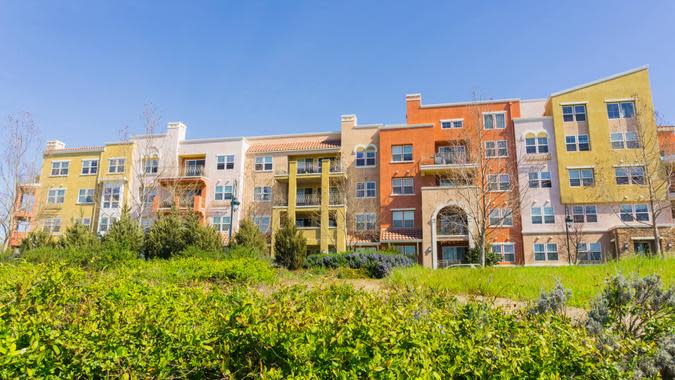
Review Condo Association Fees
Understand the condo association fees and what they cover before committing to a purchase. Know how fees are decided and decide whether you want to get involved, or even serve on the board.
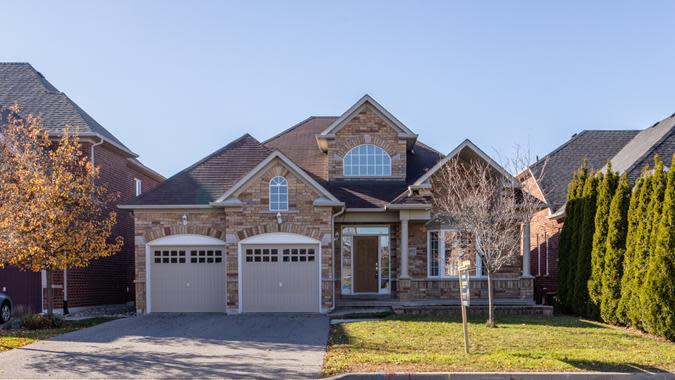
Consider Home Size
Evaluate the size of the home in relation to your current and future needs. You may not need as much space as you think you do!
Check Out: I’m a Self-Made Millionaire: Here’s My 4-Step Payday Routine
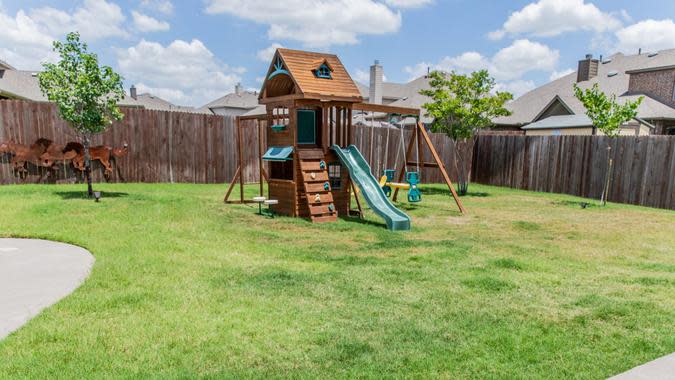
Assess Outdoor Space
Especially if you live in a temperate climate, consider the outdoor space available and its suitability for your lifestyle and hobbies. Do you love to grill? Have a dog that needs space to run?
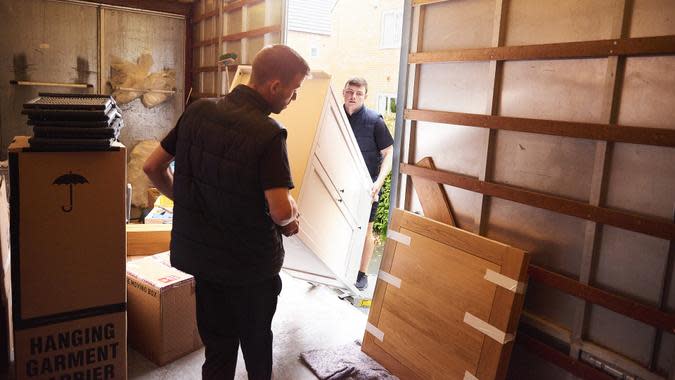
Shell Out for High-Quality Movers
Include moving costs in your budget to avoid financial strain during the transition. Don’t skimp on hiring reputable movers. Minimal savings could result in massive inconvenience if your things get damaged, delayed or lost.

Make Sure You Know What You’re Getting Into
After you’ve chosen a mortgage broker, ask them to put in writing exactly what they need in order to process your pre-qualification and find you a mortgage.
It will be some combination of pay stubs, tax returns, current rent or mortgage payment, other debt information, and bank statements. Getting this all together can be daunting, but it can save you a lot of money in the end.

Where to Land
If you’re thinking of relocating so you can afford to buy, you might want to do some research and maybe take a scouting trip or two.
Discover More: 16 Tips To Live Well on a Low Salary, According to Dave Ramsey

Consult a Mortgage Pro
Getting preapproved for a mortgage is complicated. Rates change frequently and practices differ state to state. So when you’re ready to get the prequalification letter you’re better off consulting a pro.

Go With a Local Real Estate Agent
Whether you’re staying where you live now or going somewhere totally new, you want someone local who has their finger on the pulse of the market, Deming Simkins said.
“Good, local agents know the nuances of the different cities in your county, the pertinent information that you need to know based on the city requirements, and oftentimes know the listing agents, which can be helpful in a multiple offer situation.”
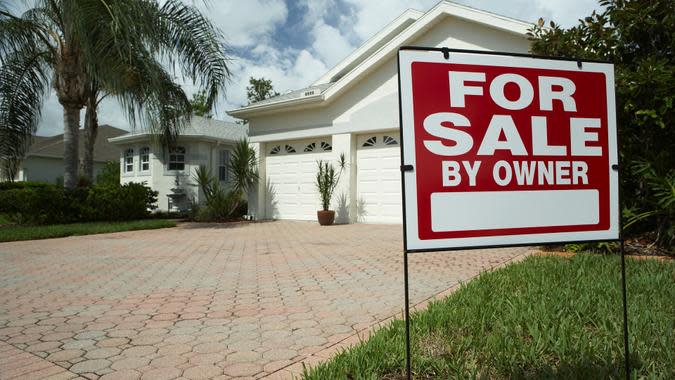
Potential Lower Commissions If You’re Also Selling
If you’re selling a house to buy another, there’s good news — you’ll likely pay less in agent commissions.

Make the Most of Your Nest Egg
If you’re keeping savings in a lower-return account, consider moving the money to somewhere with a higher return until you need it.
Read Next: Warren Buffett: 10 Rules for Young People Who Want To Get Rich

Find a Real Estate Agent With the Right Expertise
Ask where and what they’ve sold recently in your price range. Ask if they specialize in “starter homes,” “upscale properties,” “family homes,” or whatever terms best describe what you’re looking for. You want someone on your side who knows the area and is always keeping their eyes open for new and off-market listings.

Scan Real Estate Websites
Most listing sites make it easy to set up automated alerts for properties that fit your parameters of price, location and amenities. This can be a good way to get a sense of the inventory early in your search. Just remember that online listings tend to make the costs look as low as possible and the homes as beautiful and large as possible.

Take Notes
As you begin touring potential homes, take a notebook or open the notes app on your phone to jot down the pluses and minuses that strike you. Take pictures. You are not going to remember each home. They will blur in your mind.
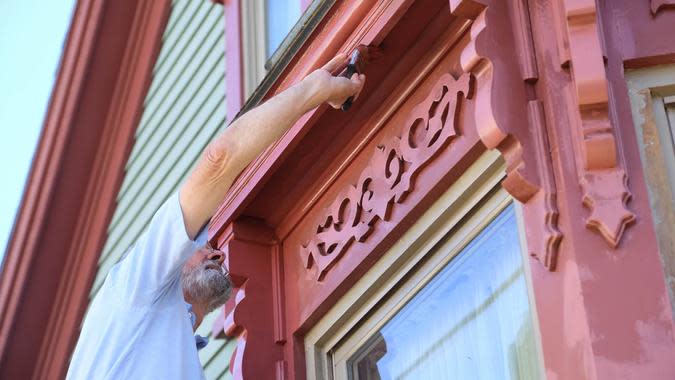
Potential Isn’t Always Obvious
Sometimes you drive up and the place is a mess. The steps are crooked, the outside needs paint, etc. You’re there. Go in anyway.
You might cross this home off your list right away. Or it might be a diamond in the rough, below your potential budget, leaving you money to finish it just the way you want it.
Find Out: How Much Does the Average Middle-Class Person Have in Savings?

Do This Every Time
Before you venture out to view, review what you’ve looked at already. In addition to your notebook, you’ve probably got a file with sell sheets on each house, including information about how long it has been on the market. Any places that don’t make the cut, take them out of the folder or cross them off of your list so that you’re looking at your most active prospects.

Are You Willing and Able To Renovate Your New Home?
Think about what you can’t live without. For those fixer-uppers that attract your attention, ballpark an idea of what move-in condition would cost you. Check out the average cost of redoing a kitchen or a bathroom in your area. It might be worth a delayed move-in to get what you want.

Can You Live With a Bit (or Maybe a Lot) of Chaos?
One rule of thumb for remodeling is that the project can easily cost twice as much and take twice as long as you first think. For now, just imagine how you’d deal with having only one working bathroom. Or if your kitchen was a refrigerator and microwave on the back porch for a month or more.

Look at Everything
It might feel funny poking into every nook and cranny. But you should! What’s that pile of dirt in the corner of the garage? What’s that funny smell in the basement? The water heater, the HVAC, the appliances. How old are they?
Check Out: Net Worth for US Families: How To Tell if You’re Poor, Middle Class, Upper Middle Class or Rich

See If You Qualify For Down Payment Assistance
These programs offer 0% interest and deferred payments for first-time homeowners who qualify. They usually work with loans from the FHA, VA, USDA, Fannie Mae and Freddie Mac.

This Might Be the One
You walk into a home that’s right in the middle of your price range. It’s beautiful. The rooms are well-placed, the right size. Even the right color. Take a breath, enjoy the feeling of feeling at home there. Remember this feeling because it will carry you through the process.

Tidying Up
Experts recommend that you take an inventory of your possessions every time you move. Think about your stuff: books, grandma’s dining room set, papers that should be shredded. Make a plan and tackle each room, including the garage and basement. Maybe one of your cousins wants the dining room set. Maybe you can “freecycle” the kids’ old toys. Sell, gift, donate. You’ll save money on packing and moving!

Rethink Your ‘Must Haves’
What could you live without? What other accommodations might you be willing to make to make an offer on a house you’ve already seen (and is still on the market)?
Prioritize your list and pick the top three that might work. Go back and look again. If one house has been on the market for a long time, offer below asking. Or a faster close.
Learn More: Robert Kiyosaki: 7 Ways To Become Wealthy Beyond the 9-to-5

Taking Second Looks
Your agent is on your side, and she or he can arrange for you to see a house you first saw on a bright sunny day on a dark night. Take a look at the house and the neighborhood in the dark.

Eureka!
You find a house you want to make an offer on. Let your agent know and you’ll spend some time filling in the details of the offer together so that they can deliver the offer to the seller’s agent.

Such a Great House, the Offers Pile In
Just because there are other offers doesn’t mean you won’t get the house. Here’s where a great agent, a comprehensive budget and understanding of your finances come into play. You can raise your bid. You can offer to close earlier, or later, depending on the seller’s circumstances.

Get Multiple Quotes for Home Insurance
Shop around to find the best coverage at the most competitive rates.
Check Out: 5 Ways To Become a Millionaire in Your 50s

Consult a Real Estate Attorney
Have a legal expert review contracts and advise on any legal implications of the purchase.

Get To Know Your Neighbors
Talking to current residents can provide insights into the neighborhood, and you might meet some wonderful new folks!

Don’t Skip the Final Walkthrough
Inspect the property one last time before closing to ensure everything is as agreed upon.

Read the Fine Print
Carefully review all documents and contracts to avoid any surprises or misunderstandings.
Learn More: How To Make Passive Income Just by Moving Money in These Ways

Keep Emotions in Check
Stay objective during the buying process to make rational decisions. Build in breaks, make time to sleep on decisions and be sure you have access to support for your own mental health needs.

Take a Break
If you’ve been looking for weeks but haven’t found anything you’d want to make an offer on, take a step backward.
Do you want to prequalify for a higher mortgage? Do you want to expand your search to different towns or neighborhoods? Do you want to choose a different agent? (You probably can, depending on what kind of agreement you signed.)

Be Prepared To Walk Away
If negotiations don’t go as planned or issues arise, don’t hesitate to walk away from the deal.

Stay Flexible
Be open to compromises and alternatives to find the best fit for your needs and budget. You don’t have to get everything you dream of to get the home that will make you happy.
Discover More: Passive Income Expert: I Make $27,000 Every Week — Here’s How

Get Everything in Writing
Document all agreements and communications and keep your paper trail organized to avoid misunderstandings later on.

Trust Your (And Your Agent’s) Gut
Listen to your instincts and intuition. Even better, the instincts of a longtime real estate agent you trust can also be your guide-true experts have a lot of history to draw on.
More From GOBankingRates
This article originally appeared on GOBankingRates.com: 100 Things You Need To Do While Purchasing a House

 Yahoo Finance
Yahoo Finance 